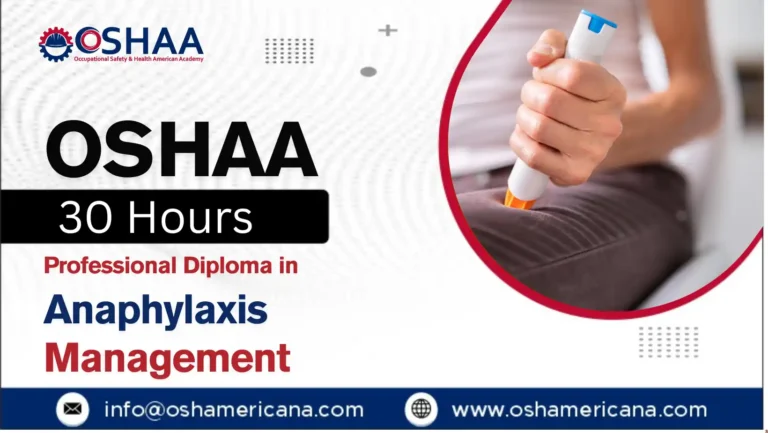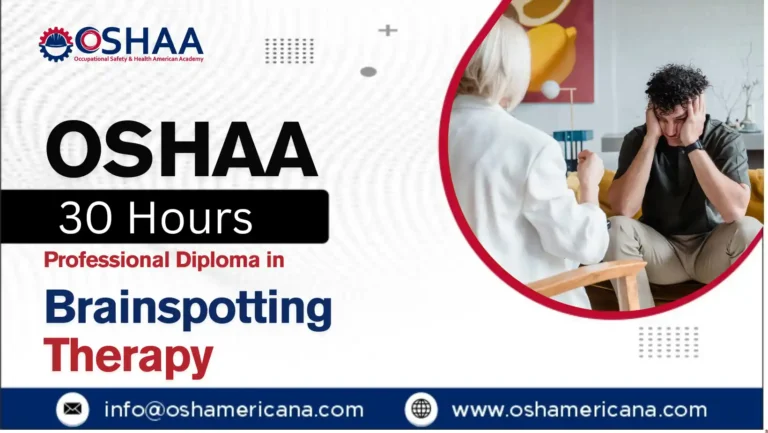The OSHAA 30-Hours Professional Diploma in Medical Law offers essential legal knowledge for professionals working at the intersection of healthcare and law. With healthcare regulations becoming increasingly complex, this diploma provides participants with a clear understanding of the legal framework that governs clinical practice, patient rights, ethical decision-making, and medical accountability.
Medical law is a vital area of legal practice that deals with the rights and responsibilities of both healthcare providers and patients. From informed consent to confidentiality, negligence to regulatory compliance, the field of medical law plays a crucial role in ensuring ethical and lawful clinical practice.
The OSHAA 30-Hour Diploma in Medical Law is a concise yet comprehensive program that provides participants with a robust foundation in legal principles relevant to healthcare. It is delivered through an accessible and flexible format that accommodates busy schedules, with each module focused on practical application as well as theoretical understanding.
Whether you are looking to enhance your legal literacy in healthcare, reduce legal risk in your organization, or prepare for a career move into compliance or legal consultancy, the OSHAA 30-Hours Professional Diploma in Medical Law offers the knowledge and practical insight to help you succeed.
OSHAA 30-Hours Professional Diploma in Medical Law
Study Units
Learning Outcomes
Introduction to Medical Law and Ethics (3 hours)
- Understand the foundational principles of medical law and bioethics
- Identify key legal and ethical frameworks guiding healthcare practice
- Recognise the role of law in shaping healthcare policy and professional conduct
- Differentiate between legal duties and moral obligations in clinical contexts
Consent, Capacity, and Patient Autonomy (4 hours)
- Explain the legal requirements for valid consent in healthcare settings
- Assess mental capacity using legal criteria and frameworks
- Understand the legal implications of treating patients without consent
- Promote respect for patient autonomy while ensuring lawful clinical practice
Confidentiality and Data Protection in Healthcare (3 hours)
- Understand the legal principles of confidentiality and information governance
- Apply data protection laws, including the UK GDPR and Data Protection Act 2018
- Recognise exceptions to confidentiality and situations requiring lawful disclosure
- Manage patient information ethically and in compliance with statutory obligations
Medical Negligence and Duty of Care (4 hours)
- Define medical negligence and establish elements required to prove a claim
- Understand the standard of care expected from healthcare professionals
- Identify common scenarios where breach of duty may occur
- Explore legal processes and consequences of clinical negligence
End-of-Life Decision-Making and Advance Directives (3 hours)
- Understand the legal status of advance decisions and living wills
- Examine the role of best interest decisions in end-of-life care
- Recognise legal and ethical considerations in withdrawal of treatment
- Apply the law to complex cases involving palliative and terminal care
Mental Health Law and Safeguarding (3 hours)
- Understand the key provisions of the Mental Health Act and Mental Capacity Act
- Identify the legal duties involved in safeguarding vulnerable individuals
- Explore procedures for lawful detention, treatment, and support
- Recognise the rights of patients and the responsibilities of professionals
Professional Regulation and Fitness to Practise (3 hours)
- Understand the role of regulatory bodies such as the GMC, NMC, and HCPC
- Learn about professional standards, codes of conduct, and disciplinary procedures
- Explore legal implications of misconduct, malpractice, and impaired fitness to practise
- Promote accountability and integrity in professional roles
Legal Aspects of Clinical Research and Innovation (4 hours)
- Understand the regulatory framework for ethical clinical research
- Explore laws governing informed consent in research participants
- Identify key legal considerations in medical innovation and trials
- Recognise the responsibilities of researchers under UK and international law
Legal Processes, Tribunals, and Healthcare Litigation (3 hours)
- Gain insight into how healthcare-related legal claims are handled
- Understand the roles of courts, inquests, and professional tribunals
- Learn about dispute resolution, mediation, and legal representation
- Develop confidence in engaging with legal processes as a healthcare professional
- Gain a strong foundation in medical law to support ethical and legally compliant healthcare practice
- Enhance your ability to navigate complex issues such as consent, confidentiality, and capacity
- Improve risk management and reduce the likelihood of legal disputes or professional misconduct
- Develop the knowledge to support patients’ rights while safeguarding professional responsibilities
- Strengthen decision-making skills in ethically challenging clinical situations
- Stay up to date with current legislation, regulatory frameworks, and best practices
- Improve your communication and documentation practices in line with legal expectations
- Boost your professional profile with a recognised qualification in medical law
- Prepare for roles in clinical governance, compliance, or medico-legal advisory work
- Study flexibly and efficiently through a structured, accessible learning programme designed for working professionals
The OSHAA 30-Hours Professional Diploma in Medical Law is designed for a wide range of professionals who work at the intersection of healthcare and law. This course is ideal for:
- Doctors, nurses, and allied healthcare workers who want to enhance their understanding of medical law in clinical practice
- Medical administrators and clinical managers seeking to improve their knowledge of legal responsibilities and regulations
- Legal professionals with an interest in healthcare law and the legal aspects of clinical practice
- Risk and compliance officers working in healthcare settings to help manage legal risks and ensure regulatory compliance
- Social workers and mental health practitioners involved in the care of vulnerable individuals and who need to understand legal duties in these contexts
- Researchers and students in healthcare or legal studies aiming to deepen their knowledge of medical law and ethics
No prior legal training is required, making this course accessible to individuals from a variety of professional backgrounds, especially those involved in patient care, clinical governance, or ethical decision-making.







